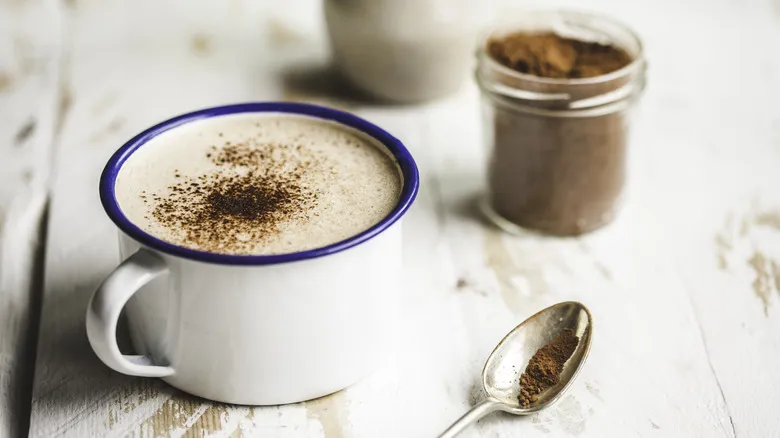When you drink it and what you add to coffee have an impact

Your morning coffee habit plays a significant role as well. Dr. Shelke explains, "The impact of coffee may be more pronounced in the morning due to an empty stomach, allowing for quicker caffeine absorption that can rapidly influence gastric emptying and bowel movements." However, the precise influence of coffee on digestion remains somewhat enigmatic, even among researchers, and there is ongoing discussion about whether it is beneficial or detrimental to digestive health.
In addition to highlighting the components in coffee that prompt bathroom visits, Dr. Kantha Shelke notes that the additives we use in our coffee can also impact our digestive system. Take Starbucks' Oleato coffee, for instance—the one infused with olive oil. Many customers have reported experiencing a laxative effect from it. This is attributed to olive oil being a type of fat that can stimulate the colon, particularly when consumed in excess. When combined with coffee's effects, the outcome can be quite intense.
On the other hand, you might assume that adding cream to your coffee would lessen its impact on your digestive system. Unfortunately, this can backfire, as approximately 68% of individuals struggle to digest lactose. If you are already lactose intolerant, incorporating it into your coffee may heighten the urgency to use the restroom. In fact, many people do not exhibit symptoms of intolerance until later in life, so even if you've enjoyed dairy products without issue for years, it could become problematic as you age.
You can't stop the effects of coffee but you can work around them

While it's impossible to entirely eliminate the effects of coffee, you can find ways to manage them or even leverage them to your benefit. For example, consider reducing your intake (we know, it sounds sacrilegious) to discover a balance that doesn't leave you rushing to the restroom. If your coffee-induced bathroom visits tend to occur at inconvenient times, such as during your morning commute, try adjusting when you enjoy your coffee.
If additives like dairy creamer are causing issues, experiment with a non-dairy option, which Starbucks now provides at no additional charge, to see if that helps. Similarly, if you're using a sweetener that contains sucralose, like Splenda, this could lead to digestive discomfort, so you might want to try alternatives like monk fruit sweetener or Stevia. However, keep in mind that many sweeteners can cause digestive problems for some individuals. If that's the case for you, switching to honey in your hot beverages might be a better choice.
Additionally, you can intentionally use coffee as a means to promote regularity. According to the National Institute of Diabetes and Digestive and Kidney Diseases, approximately 16% of adults and 33% of those over 60 experience constipation. In such cases, coffee could be quite beneficial. However, individuals who are particularly sensitive to coffee, suffer from irritable bowel syndrome, or are managing high blood pressure should be cautious with their coffee consumption, as it may worsen their symptoms.
Recommended

It's Time To Start Mixing Cocoa Powder Into Your Coffee

For A More Complex Spiked Coffee, Opt For A Flavored Vodka

How Eggs Completely Transform A Bitter Cup Of Coffee

What Makes Butterfly Pea Flower Tea Change Color?
Next up

